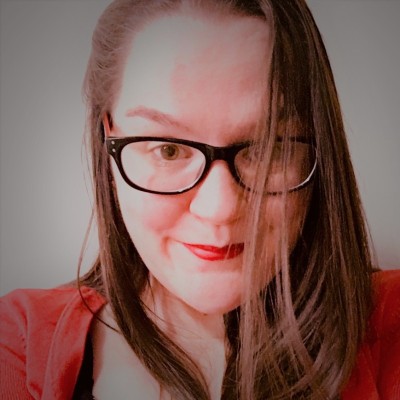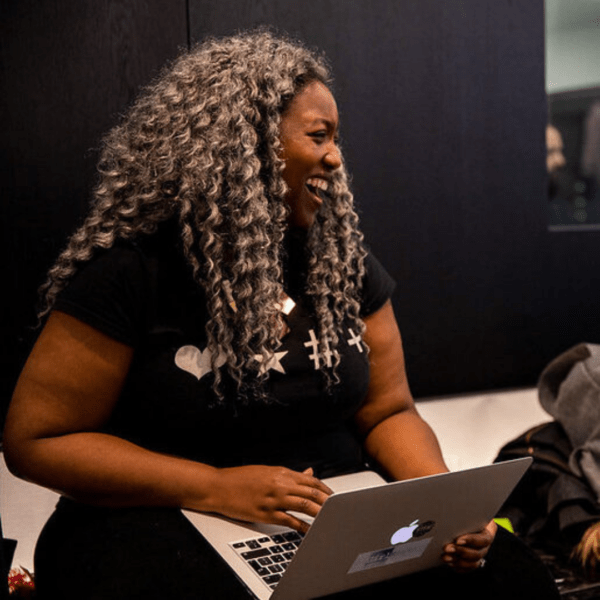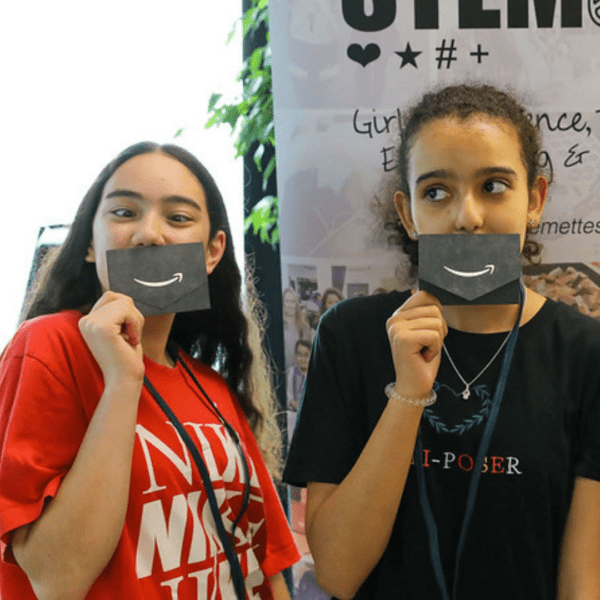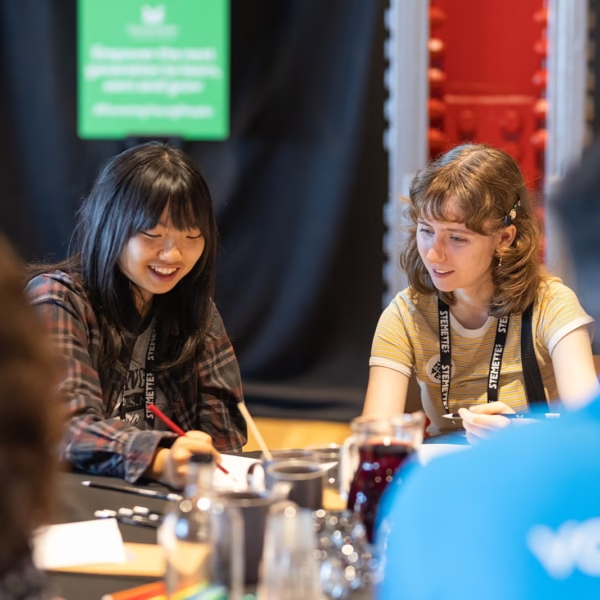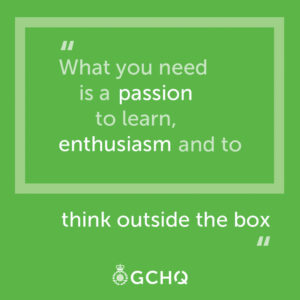
Before joining the world of work…
A big lesson for me at GCSE and A-level was to choose subjects that you’re interested in. I ended up swapping a subject at A-level because it wasn’t quite the right fit, and I wasn’t passionate about it.
When choosing what to study at university, I hadn’t heard of ‘linguistics’, but when I came across it, it was the obvious choice. The course description highlighted everything I was interested in, including maths, logic, languages and history, so it was easier to write my statement and helped me get into all of my choices for university!
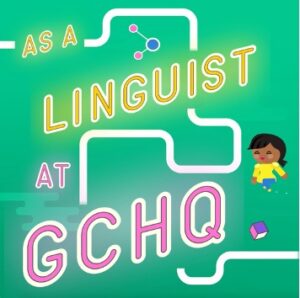
How did you end up working at GCHQ?
I’d heard about being a GCHQ ‘language analyst’ through my university, as GCHQ has an ongoing recruitment campaign for graduates. When I saw a job advert for the language analyst role specifically for ‘heritage’ (or native) speakers, I thought it would be something meaningful, and something where I could make a real difference whilst working for a prestigious organisation.
How do languages and STEM fit together in your job?
We collect intelligence so it can be used by the government to keep our country safe. We mainly focus on threats from abroad, which means lots of our intelligence is in a language other than English. There wouldn’t be much point in collecting all the intelligence if we couldn’t understand what it said, right?
Now, here’s where the STEM part comes in. As a cutting-edge STEM organisation, the reason we have language analysts is that we need the language skills to understand the intelligence, to be able to problem-solve, AND, crucially, we also need to understand how the technology works!
Imagine reading an article about how an engine works or telling someone how to code. Now imagine doing that in a different language, maybe in one that you’re learning now, or one you only know the name of. It’s somehow different, right?
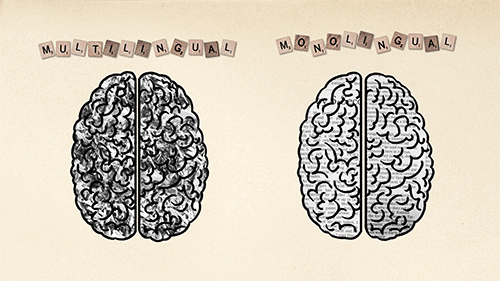
As well as being able to use Korean, I’m also learning Python to benefit my current role. Python is a programming language (which is are great combination of languages and programming). I think it’s important to keep learning new skills, and at GCHQ it’s encouraged!
The best piece of advice you’ve been given, and who said it?
“If I waited for perfection, I would never write a word.”
– Margaret Atwood
I am a harsh critic of myself and take a while to produce the best piece of work I can. With Margaret’s quote, I relate to it because if you at least start doing something, then you’re on your way and can improve it as you go along, rather than starting from scratch and waiting for it to be perfect, because that’s a lot harder!
This article was written by Sophia, a Linguist from GCHQ.
To find out more about GCHQ, visit their webpage at gchq.gov.uk or follow them on Twitter and Instagram



